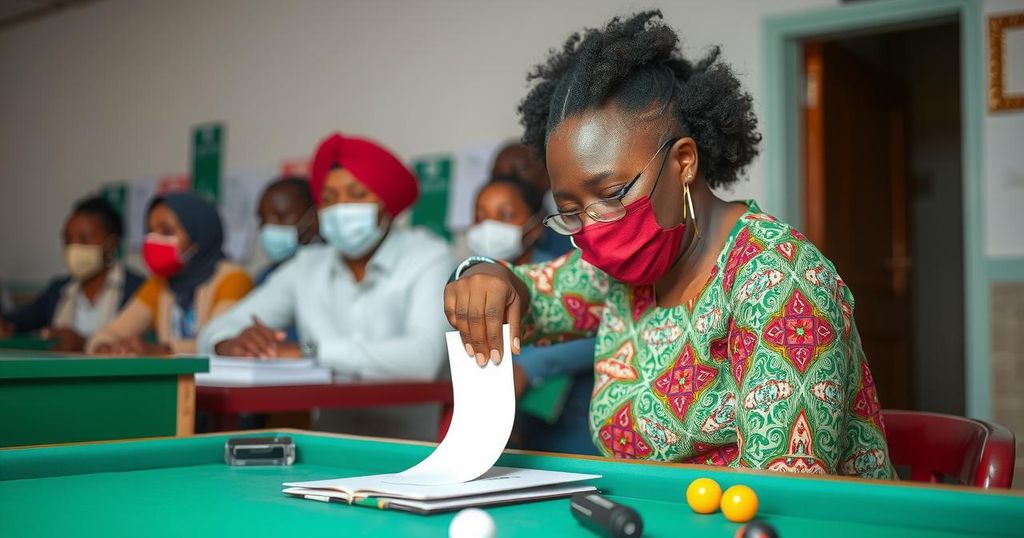Opposition Boycotts Comoros Parliamentary Elections Amid Concerns of Authoritarianism

Comoros held a parliamentary election boycotted by several opposition parties due to concerns over electoral integrity and increasing authoritarianism under President Azali Assoumani. Approximately 330,000 registered voters participated, but low turnout is anticipated. The election results will impact 33 legislative seats, following a history of contested elections and political unrest in the region.
On Sunday, Comoros conducted a parliamentary election, which was boycotted by several opposition parties. These groups accused the ruling party, led by President Azali Assoumani, of increasingly authoritarian practices and raised concerns regarding the fairness of the electoral process. The election aimed to fill 33 legislative seats, with results due to be announced next week, according to the national electoral commission.
Approximately 330,000 of Comoros’ 850,000 inhabitants are eligible to vote. However, opposition parties anticipated low voter turnout due to dissatisfaction with the nation’s democratic processes. In the previous parliamentary election held in 2020, Assoumani’s ruling party and its allies secured 20 of the 24 contested seats, a victory the opposition deemed a “masquerade,” asserting that the election lacked integrity. Assoumani himself cast his vote in his hometown of Mitsoudjé on Grande Comore afterward.
The opposition is currently expressing distrust toward the electoral system. The Juwa Party, led by former President Ahmed Abdallah Sambi, was among those abstaining from the election, aligning with their boycott of the 2020 parliamentary race. Comoros, an archipelago consisting of three islands near Madagascar, has experienced numerous military takeovers since achieving independence from France in 1975. Assoumani first assumed power in 1999 through a coup.
Though he stepped down in 2006, Assoumani returned to the presidency and has since secured three consecutive terms. Notably, constitutional amendments in 2018 enabled him to bypass term limits while undermining prior agreements that mandated presidential rotation among the islands. The Africa Center for Strategic Studies, a U.S. Congress-funded research organization, highlighted Assoumani’s administration as having developed a pattern of political repression and a lack of competitive electoral practices. Voting proceeded despite the looming threat of Tropical Cyclone Dikeledi, which was projected to skirt the vicinity of Comoros and the French territory of Mayotte.
Comoros is a small archipelago consisting of three primary islands located in the Indian Ocean off the eastern coast of Africa. Since its independence from France in 1975, Comoros has been riddled with political instability, largely attributed to repeated military coups. President Azali Assoumani has played a significant role in this dynamic, having first seized power as a military leader in 1999. His tenure has been marked by controversial elections and increasing allegations of autocratic governance. Recent changes to the constitution allowed him to run indefinitely, raising further concerns about the state of democracy in Comoros. The political environment remains highly polarized, with opposition parties actively challenging the credibility of ruling party elections.
The recent parliamentary election in Comoros has underscored ongoing tensions between the ruling party and opposition groups, reflecting widespread distrust in the democratic process. President Azali Assoumani’s leadership continues to be scrutinized for authoritarian practices, and the disaffection from the electoral process demonstrates significant public disenchantment. With reports of low voter turnout and ongoing accusations of electoral illegitimacy, the future of governance in Comoros remains uncertain as the political landscape continues to evolve.
Original Source: www.wral.com







